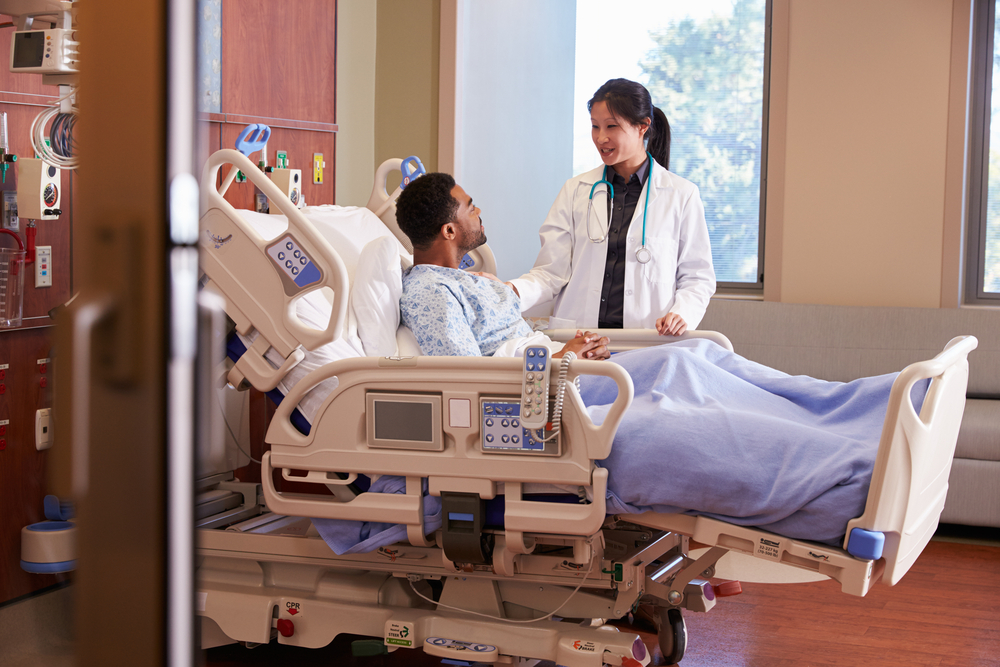Contents:
- Medical Video: 11 Signs of Health Problems Hidden On Your Face
- Various health problems that may be faced by new students
- 1. Increase weight
- 2. Lack of sleep
- 3. Stress
- 4. The emergence of risk behavior
Medical Video: 11 Signs of Health Problems Hidden On Your Face
Congratulations! You have now officially become a new student at the university of your choice. Life as a student will certainly be totally different from the school age. Prepare yourself to balance academic achievement with social life which is equally important. On the other hand, also know that the lives of new students are not immune from certain health risks.
Various health problems that may be faced by new students
Here are some types of health problems that may be faced by new students
1. Increase weight
One of the most common health problems approaching many new students is gaining weight. One study reported that the weight of new students on average could rise to 1.2 kg in half a year, and within a year could experience a total weight gain of up to 6.8 kg. This increase in body weight tends to be 5.5 times higher than weight gain in the general population.
Ages 20 to 30 years are times when someone shapes their eating habits. Weight gain is generally triggered by consumption of high-calorie foods, especially from sweet foods and drinks. In addition to gaining weight, an unbalanced diet can cause vitamin deficiencies that can interfere with health. Gaining weight at the age of being a student can remain until someone is growing up. Long-term weight gain can lead to obesity and other chronic diseases, such as diabetes and heart disease.
However, this health risk can be addressed as early as possible by limiting the consumption of processed foods and increasing cooked natural foods such as meat and vegetables and fruit consumption. Set aside 30 minutes per day or 2.5 hours per week can also be a way to maintain weight and limit excess calorie intake.
2. Lack of sleep
Ospek for one semester, faculty activities, the number of classes that must be attended, tasks that accumulate, and not forgetting also the weekly night hangout session can cause new students to experience lack of sleep. Sleep deprivation has a direct impact on your academic performance, making you easier to stress, fast drowsiness in class, and difficult to concentrate on attending lecturer lectures.
Lack of sleep also has an impact on gaining weight. It's a good idea to start improving good sleep patterns, such as applying the principle of sleep hygiene.
3. Stress
New students are vulnerable to severe stress. Stress is related to nutritional disorders and sleep disorders and triggers depression. One of the causes of stress in new students is a change in the structure and routine of activities. Besides that the lack of social support and self-isolating behavior can have an impact on depression, leading to suicidal tendencies.
Recent research shows that stress and depression are something that is common for students and significantly affects academic ability. Experiencing mental distress to depression when becoming a new student contributes to the decline in academic performance by 2.9 - 4.9% and a decrease in the cumulative grade index (GPA) of 0.2 - 0.3 at the end of the semester.
One study in America showed the risk of death in students was higher than in the general population in the same age group. The highest cause of death in students is suicide. One in three deaths in students is experienced by new students.
Maintaining mental health is important for new students. This can be done by participating in useful activities such as taking extracurricular activities on campus, being active in the organization, and maintaining physical health by exercising regularly and fulfilling sleep needs. If you need professional help to deal with depression, don't hesitate to seek help from the closest person or counseling provided by the college.
4. The emergence of risk behavior
In addition to unhealthy lifestyles, the threat of health problems can also come from risky behaviors such as smoking, excessive alcohol consumption and the use of drugs. Although its use is intended for recreation and calming down, there are health risks that arise such as experiencing symptoms of sakau and the emergence of various chronic diseases.
In addition, other risk behaviors can be free sex which can increase the risk of sexually transmitted infections and unwanted pregnancies. Both of these impacts will be very dangerous for physical and mental health and even reduce the quality of one's life. Although sexually transmitted infections can be cured, some cases can cause serious infections when not treated early.
Unsafe sexual behavior carried out at an early age is also very risky for women, especially for their fertility and reproductive health in the future.












